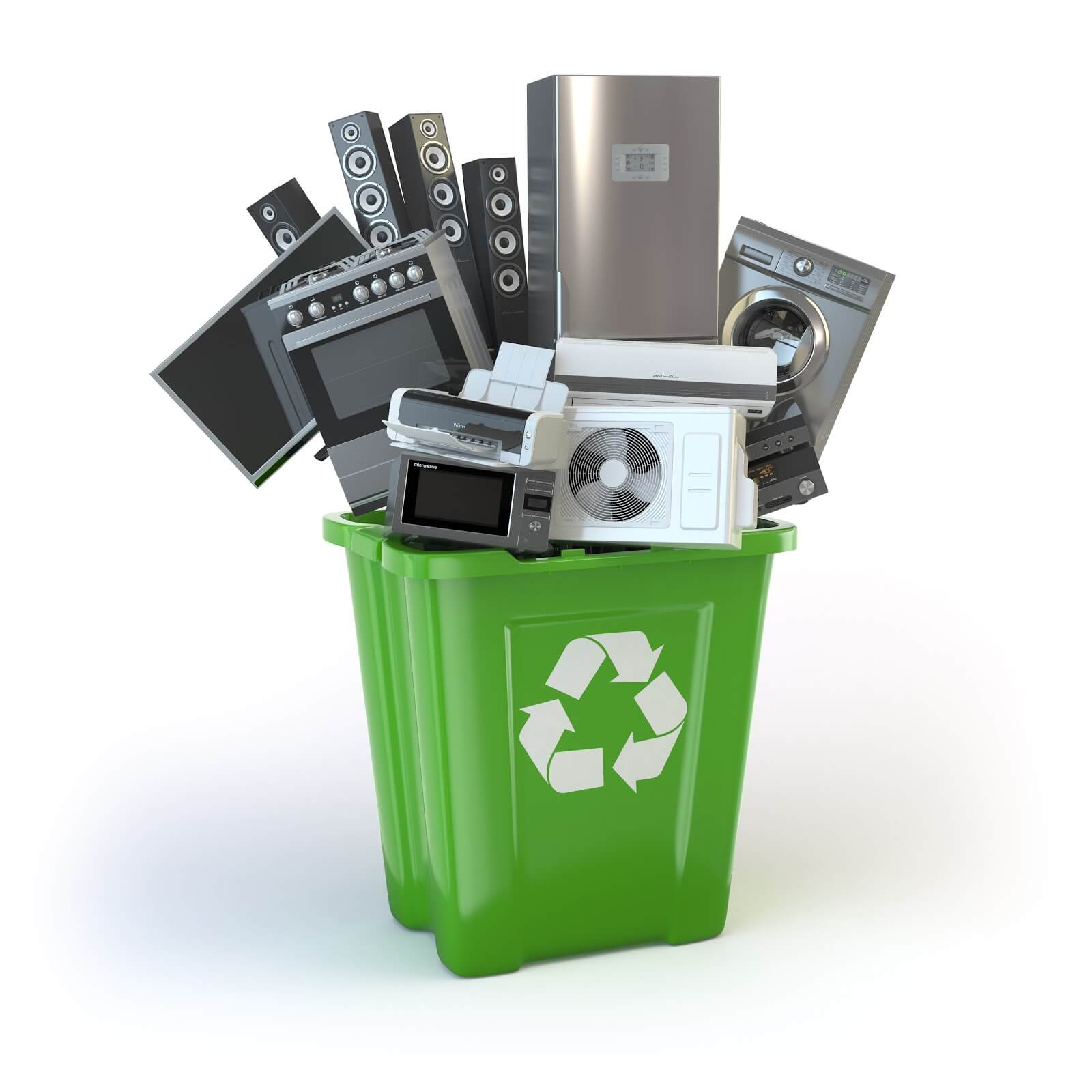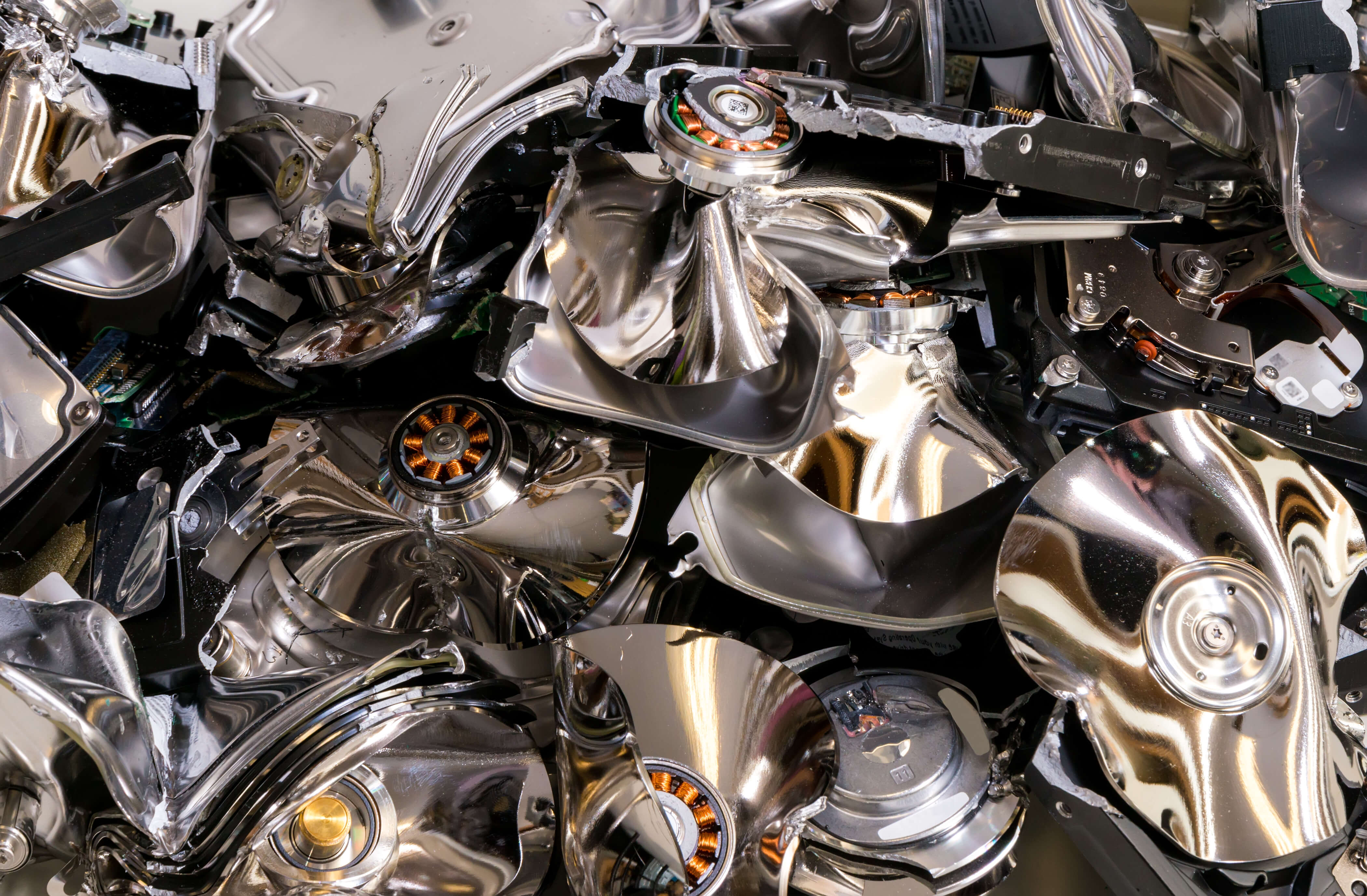One of our primary goals with the various paper shredding, and electronic disposal services is the continued support of recycling efforts. This is very important to us as reducing the impact on the environment is critical for us all. Climate change is an undeniable fact, and our environmental impact is accelerating that process. Reducing our impact will help to bring things in to balance again, and just generally make a cleaner and far more pleasant world to live in.

How We’re Lowering Environmental Impact
One of our primary methods of lowering our impact is recycling all the shredded paper material generated from a shred job. With the sheer volume of paper still being used in the world today, the impact of replacing everything one to one is huge. However, the savings of recycling even just one ton of paper goes a long way.
Recycling One Ton of Paper
Let’s look at some of the savings that can be achieved by recycling just one ton of paper. As you read the following, consider just how much savings we can achieve as we scale recycling operations.
17 mature trees: Trees are one of nature’s air filters, taking in CO2 and releasing clean oxygen. Furthermore, they provide essential habitats to many animals, and are overall an integral part of the ecosystem.
7,000 gallons of water: Water is essential for all life on this planet. There is only a limited amount of freshwater easily available.
3 cubic yards of landfill space: Landfills take up an ever increasing amount of space. The garbage has to go somewhere after all, but it requires the destruction of natural habitats to create them.
2 barrels of oil: Oil is very controversial these days, but it’s impact is clear. By lowering our need for it, we lower its impact on the environment.
4,100 kilowatt-hours of electricity: There is only so much power to go around, and much of it comes from non-renewable sources. Lowering the overall need for it lowers the non-renewables impact as a whole while we search for clean energy sources.
All of that comes from just one ton of paper. Just the one. Now start multiplying that many times over, and the benefit for the environment, and us by extension, becomes clear. We’ve taken it upon ourselves to help push forward sustainability, and we make it easy for everyone to help contribute as well.
If you’re interested in keeping your private information safe while pushing forward sustainability, give us a shout, and we’ll help you with both!
Paper Shredding Event, sponsored by Centre Church in Lynnfield, will take place on Saturday, April 3rd, 9am – 12pm. There will be a mobile shredding truck to shred your documents on-site. You can watch your personal documents be shredded. 100% of the shredded material will be recycled. Bring your unwanted documents to shred to protect your identity, such as: old tax returns, old bank/credit card statements, medical records, old paystubs and/or old utility bills. Protect your identity and the planet!
Suggested donation is $5 per bag and/or $10 per banker box. The donation will benefit Change is Simple (https://www.changeissimple.org/), an early education program teaching environmental stewardship. Limit is 5 boxes per person.
- Wear a mask
- Practice social distancing and maintain six feet between them and others
- Stay home if you are feeling ill
Location:
Centre Church
5 Summer Street
Lynnfield, MA 01940
Time: Saturday, April 3rd, 2021 at 9:00 AM – 12:00 PM
Let A1 DATASHRED Shred your documents for you!
How long has there been a computer in your house? What about the workplace? How many old TVs are sitting in the basement, or the attic, collecting dust for years and years? Has your shelf of old cell phones been cleared off recently or are you still using them as questionable decor?
There’s a tendency for people to hold onto their older electronics when newer ones come in. Mostly it’s due to people wanting a backup in case the new one bites the dust suddenly, or to simply relocate the older one to another room that could use it. Otherwise the reasons can be anything, from hoarding, to simply forgetting about it. Eventually there comes a time when they have to go. When that time does come, you need to make sure you’re getting rid of them properly.

Electronic Recycling
Inappropriate Disposal
The default behavior for most would be to load up the old electronics and take them to the dump, or throw smaller ones in the trash, and in some cases to drop them in a ditch somewhere down a country road. Obviously, don’t do that last one. The landfill is not the correct place for these items to end up for some very important reasons.
Thousands of computers, cell phones, TVs, DVD players, and other electronics are suddenly rendered obsolete every day, and many feel a compulsion to have the latest devices. As many of them find their way to the landfill they take up valuable space that is better served for more appropriate trash. This causes landfills to fill up too quickly, necessitating them to be closed and new ones opened.
Furthermore, electronics contain materials that pose a hazard should they break down outside. Materials such as lead, cadmium, mercury, and other materials will break down and leak chemicals into the air, water, and soil. Naturally, they will eventually find their way into the bodies of the plant, animal, and human life in the area. In case you’re confused, ingesting these chemicals is bad for you, and the environment, but there is a solution.
E-Waste Recycling
Electronics are stuffed full of recoverable materials such as various metals, glass, and plastics. These can be salvaged and reused in new products, the more harmful material can be properly disposed of preventing any risk of contamination. By recycling these components we are able to reduce our impact on the environment by lowering the need for new resources to be extracted.
The process is rather straightforward, get in touch with an e-waste recycling provider and make some arrangements. Your e-waste can be picked up, or they may provide drop off options for collection. When it comes to computers or any kind of data storage device you need to make sure that it gets destroyed before it’s sent off to recycling. Some services will combine their recycling with hard drive destruction, in which case you should be good to go. But make sure to double check before committing as you want to avoid any risks of data theft.
Electronics need to be recycled properly and it’s not hard to do it. Let’s all do our part to protect the environment and do something properly.
It’s no secret that scam emails are circulating in abundance, and have been for many years. As if junk-mail and scam callers weren’t bad enough, they will also reach out to you through your private emails. It seems like there is no escape from these sorts of things as they far too often find their way around the spam filter. While endlessly annoying, they can be fairly harmless when you know what you’re doing.

For those that are less educated in these matters, scam emails can pose a very serious threat. What can seem like a harmless inquiry, or contact from a known source, can soon turn out to be something far more sinister. You may find yourself with major headaches for many years to come after your dealings with these emails. The solution? Informing oneself on email safety. What you need is to be aware of the proper way to deal with these invaders of your privacy.
Here’s How:
Identifying Scam Emails
The first thing you need to do is know how to identify the scam emails from the real ones. Once you get a grip on doing this you’ll be in a much better position. Their main tactic is to try and appear to be from companies or other sources that you might trust. These trusted sources could include your bank, credit card company, the government, e-commerce stores, social media, etc. This of course is the lure with which they tempt you.
From here they try and spin a story for you; one that inspires urgency to act or face severe repercussions. Some common yarns they will spin for you are the following:
- Suspicious activity on your account
- Asking to confirm your personal and private information
- Fake invoices requesting you to pay
- Trouble with the law unless you click here now
- An offer to claim free merchandise or services
Oftentimes the spelling and grammar in the email is poor as well, and the greeting will be fairly generic instead of personally addressed to you. The from address usually looks very suspicious as well, since it’s impossible for them to use the proper and official email address of whatever organization they are pretending to be.
How You Should React
The best thing you can do is try to identify scam emails from their subject line, before you are tempted to open them. This will help to avoid any nasty surprises that may be within when you take the risk in opening them. Sometimes opening an email will send a notification back to the sender, so they will know there is someone on the other end, and you may start getting more. Should this occur, simply delete the emails without opening them. Since that’s not always an option, and you may have to open them to identify what it is, we’d recommend keeping an updated antivirus software on your device. This will help protect you from anything within. Keep your operating system updated as well to avoid any security issues that might come with having an older version. If unauthorized access to your accounts is an issue on your mind, you can set up two-factor authentication to get a notification, and one time code, whenever a login attempt is made.
Remember that these types of emails will try to lull you into a false sense of security by posing as a trusted source. They will ask you for something, follow a link, make a payment, provide information, etc. Nothing good will come of doing any of that. Keep your wits about you when checking your emails, and delete the scams as they come in.
There are many articles of old media floating around the world right now. These can range from old cassette tapes, CD’s, floppy disks, older cell phones, and old USB sticks. It’s easy to lose track of these as time goes on. Many, when they get a shiny new device, simply toss the old one in the trash, which can be a very dangerous prospect depending on what data they store.

How Old Data Can Come Back
It may not occur to everyone, but old data can actually come back to haunt you when you least expect it. By in large this comes from a misunderstanding in how data is stored and destroyed, with many believing deleting is enough. In reality, deleting data is not enough to permanently destroy it.
When data is deleted, what is really happening is the space in which the selected data uses, becomes flagged as being available. Eventually in time as new data is created, the old can be overwritten, and is then lost. This is not a perfect system however, as data fragments can still exist, and it may be some time before deleted data has new data saved over it. All of this results in an increased risk for that data to be recovered by a determined individual with little time or effort. Even fragments of fully lost data can be retrieved.
This is one of the ways identity theft, and information theft, can occur to businesses and individuals. Imagine what could happen if the data recovered by a less than savory individual involved your old financial records. It could be enough for them to commit some serious banking fraud, which will leave you with headaches for years to come. Stolen medical records can lead to you being recommended treatments and medications for conditions you never had, but they’re logged on your records from someone posing as you. No matter what it is, your problems could just be starting if you aren’t careful.
What To Do
So how does one avoid this unfortunate situation? The only way to be safe, truly safe from old data being used against you, is to have this media destroyed physically. What does this mean exactly? Service providers use shredding machines, which you can think of as essentially large grinders, to crush, and shred, the devices into tiny little pieces. This makes it truly impossible to recover data, as there is nothing left to recover data from.
An added benefit of this type of service is that the destroyed material is then recycled into new products. This lowers our impact on the environment, and keeps harmful materials out of landfills. It ends up being the best of all worlds: keeping you safe, and helping the environment! What more could you want really?
Remember it’s not wise to merely delete data, nor is it responsible for you to lose track of that old media. Keep information protected while in your hands, and when it’s time to move on or get rid of it, make sure you are using some form of physical destruction process. The leftovers should be recycled after to be extra responsible. You don’t have to approach it alone; we’re able to assist you with this.


